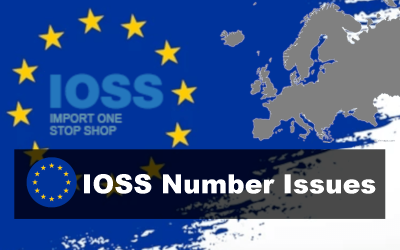In December 2022 the European Commission (EC) published its proposals for VAT reforms under the ‘VAT in the Digital Age’ (ViDA) system. These proposals are due to come into place from January 2024, finally all being used in practice by 2028. Although these are yet to be confirmed at the final arrangements, it is stated that small tweaks are likely to be made prior to them being enforced. The proposed changes aim to reduce the VAT Gap currently in the EU, which was estimated in 2020 to be around €93 billion.
The reforms revolve around three main aspects, introducing standardized Digital Reporting Requirements (DRR) and e-invoicing, address challenges of platform economy in short-term accommodation and transportation services (ie. Air B&B and Uber), reduce the registration requirements for businesses.
Below are the three main points of the reforms, outlined in more detail:
DRR and E-invoicing:
DRR
· The new reforms focus on intra-community transactions, in order to eliminate the gap of missing trader information. By doing this, it will eliminate the need for the EC Sales List to be reported as a separate return. The transactions covered in the domestic reverse charge mechanism will also be covered.
· The data must be transferred electronically on a transaction-by-transaction basis, and will be able to be reported directly by the seller, or by a third party on the tax payer’s behalf.
· Each member state will have the option to impose these reforms for domestic supplied of goods and services, however the intra-community transaction reporting will be mandatory for all EU member states.
· It is hoped that the reforms will be fully in place by 2028, however some changes may occur.
E-invoicing
· E-invoicing is the use of a digital system that submits the invoice information in the “01” format, not just creating invoices electronically and sending a PDF document.
· E-invoices will be submitted for all transactions, giving ‘real time’ reporting of transactions to the tax office. This will help eliminate fraud in these areas.
· The ability to issue e-invoices will not depend on if the recipient is et up to receive them, and there will be no option to send additional follow-up invoices.
· This will begin to be rolled out from January 2023, dependent on each country, however will be mandatory for use by January 2028, providing the proposals for reform do not change.
Platform Economy:
· The proposed changes for platforms clarify that services provided to non-taxable persons qualify as intermediary services – not as electronically supplied services.
· The current scheme of IOSS for platforms will become mandatory, rather than optional, and the ‘deemed supplier’ regime will be introduced.
· The ‘Deemed Supplier’ regime will extend to cover platforms in the accommodation and passenger transport sectors, which are not currently included. Under this regime, with any supplier that does not currently charge VAT the platform will become liable to charge and report the VAT on supply.
Single VAT Registration:
· This will be available from January 2025
· The OSS scheme will be extended to include movement of own stock by e-commerce sellers, prior to B2C e-commerce sales. Movement would still be reported as two taxable transactions, both reported through the extended OSS scheme.
· Businesses will be able to charge, report and manage full VAT obligations in the EU through their domestic tax authority.
· It will eliminate the need for many VAT registrations for e-commerce sellers, lowering the costs incurred for each registration.
· The currently option domestic reverse charge mechanism for B2B supplies is proposed to become mandatory for all EU countries.
Over the next few months it is hoped that confirmed plans for the reforms will be published to allow businesses to ensure appropriate measures are put in place in time for the roll out.




